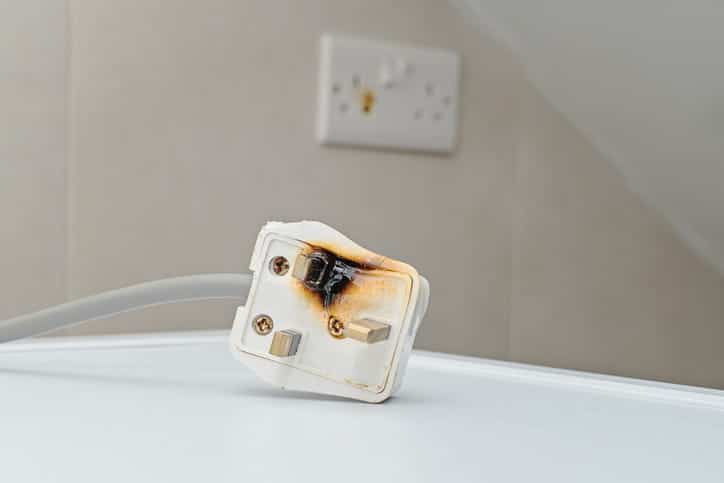When an injury occurs as the result of a defective product, the victim needs to show how the product malfunctioned in a way that causes harm. Companies that create products are generally strictly liable when their products don’t function as intended.
But it’s still up to the victim to prove that the product malfunctioned and that the malfunction produced the victim’s injuries. This may mean working with a skilled product liability attorney to build your claim. Learn more about retaining evidence in your defective product case here.
GET YOUR FREE PRODUCT LIABILITY ACCIDENT CONSULTATION
NO FEES UNLESS WE WIN!
Preserving Evidence in a Defective Product Case
One crucial part of building a defective product case is retaining the evidence of the defective product. The condition of the product can be critical evidence of the product malfunction. By showing the item itself, you help the jury connect the dots between the defect and your injuries.
In some circumstances, preserving the evidence is relatively easy. For example, if you sit on a chair and it breaks, you have the chair in your possession and control. You can bring the chair on the day of your trial and show it to the jury.
In other circumstances, retaining evidence in a products liability case is not so simple. If the product defect is in a vehicle that another person owns, you do not have control of the item that causes the harm. If the product defect is a medical device, the device may be implanted in your body. In some cases, like prescription medication, the product may be destroyed before you’re even aware of the malfunction. Retaining evidence in a products liability case can be a challenge.
Preserving Evidence of a Defective Product – When You Have Control of the Product
When the defective product is in your control, preserving the evidence is a matter of taking the right steps to keep the item safe and maintaining its integrity. For example, if you’re hurt because of an electric can opener that cuts your hand, you should place the can opener in a sealed plastic bag. You should also keep the clothes that you were wearing in another sealed plastic bag. Even the can that you’re trying to open at the time of the accident should be stored securely. You should put it all somewhere that other people including others in your household don’t have access to it.
When you’re the one in control of the evidence, it’s important to try to keep the product and other evidence from suffering harm. For example, in the case of the defective electric can opener, it’s not a good idea to wipe any blood or torn clothes off the can opener. It’s not a good idea to leave the can opener in the sink where it can be splashed by water and banged by dishes. When you’re the one who has the product, you should keep the item somewhere that it can’t get damaged by other objects, liquids or even extreme temperatures. As soon as possible, tell your attorney where the items are and ask them what steps you should take to preserve them.
Preserving Evidence of a Defective Product – When Someone Else Has Control of the Product
When the product is in the control of another party, you may need to take formal steps to view the item and inspect it. You may use the Nevada Rules of Civil Procedure to order the other party or even a third party to permit you to examine the item. You may accomplish this by noticing a subpoena. Nevada Rules of Civil Procedure Rule 34 allows you to demand access to an opposing party’s property to inspect tangible things.
You may also use court procedure to motion the court to preserve the evidence. For example, if the defective product is a vehicle, you may need to ask the court to inspect the vehicle before the vehicle owner has it repaired. You might demand that the vehicle owner or the body shop save the pieces of the parts that are going to be replaced. In some cases, the court may order an opposing party not to use an object until the litigation has resolved. The best course of action depends on what exactly the object is and what malfunction occurred. Your products liability attorney can evaluate the situation and determine how to best go about preserving and inspecting evidence that is in the hands of another party.
Preserving Evidence of a Defective Product – When No One Else Has Control of the Product
There are some products liability cases where no one else has control of the item in question. The object may be destroyed because of the defect. In some cases, the item may be gone entirely. In other cases, it may be impossible to return the item to the state that it was in before the malfunction. The question becomes how to prove that the product is defective without having it to use as a show and tell.
For example, let’s say you go to the hair salon to get your hair colored. Instead of turning your hair the right shade, your hair turns orange. The dye burns your scalp leaving blisters. It turns out a production error lead to the wrong chemical being placed in the hair dye. In the case of the hair dye, the fact that the hair dye severely burns your scalp can be evidence itself of the defective hair dye even though the dye itself has washed down the drain. In a case where there may not be a way to keep the product to show it to the jury, a victim may rely on the harm to infer the defect of the product.
Spoliation of Evidence
You might wonder what’s to stop the opposing party from simply destroying the evidence that’s unfavorable to them. If a litigant knows that an item may be evidence in a lawsuit, they have a duty to preserve it. There are a number of possible remedies available if the other side alters or destroys evidence.
Related: 7 Tips for Preserving Evidence in Your Personal Injury Case
For example, the court may disallow the other side from presenting their defenses to the claim. The court may instruct the jury that they may presume that the destroyed evidence is damaging to the party that destroyed it. Spoliation of evidence rules can be a helpful remedy in the case of intentional destruction of evidence.
Areas We Service in Las Vegas, Nevada
Henderson | Anthem | Summerlin | Paradise | Summerlin North | Summerlin South | Sunrise Manor | Nellis AFB | Desert Shores | Downtown South | Charleston | Richfield | Crestwood | Angel Park Ranch | Queensridge | Casa Grande Pines | Winchester |

Product Defect Injury Claim
“This attorneys office is very professional and friendly. They handle everything in a timely manner and are so easy to worn with. I highly recommended this attorney”
START YOUR FREE CONSULTATION
NO FEES UNLESS WE WIN!
SE HABLA ESPAÑOL
Call Now! Free Consultation!

Adam S. Kutner
PERSONAL INJURY LAWYER
With more than 34 years of experience fighting for victims of personal injury in the Las Vegas Valley, attorney Adam S. Kutner knows his way around the Nevada court system and how to get clients their settlement promptly and trouble-free.












